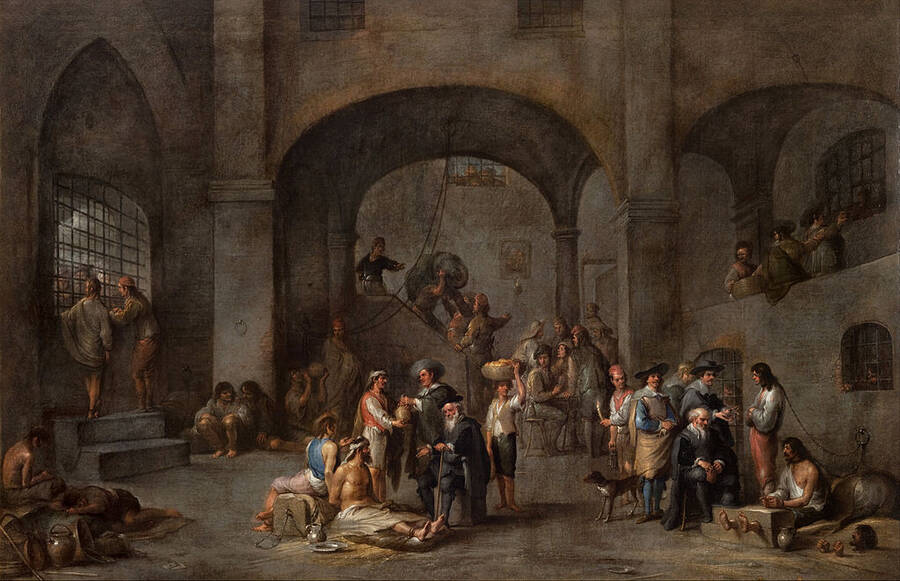Mens Divina [Latin] – Divine Mind
The unexamined life is not worth living. - Socrates
The Essence of Intellectual Spirituality
Intellectual spirituality is the pursuit of meaning, purpose, and transcendence through reason, philosophy, and reflective inquiry. It views the human mind as a vessel for exploring the deepest questions of existence, animated by a life force akin to the ancient pneuma (Greek for breath or spirit) or ruach (Hebrew for spirit), reinterpreted as the spark of consciousness. Unlike authoritarian spirituality’s reliance on hierarchy or mystical spirituality’s ecstatic experiences, it emphasizes rational exploration, seeking truth through logic, ethics, or existential contemplation. From ancient philosophers to modern humanists, intellectual spirituality offers a path for those who find the sacred in thought itself. This exploration delves into its principles, practices, and role in humanity’s quest for understanding.
Foundations of Intellectual Spirituality
At its core, intellectual spirituality is grounded in the belief that reason and reflection can uncover profound truths about existence, morality, and the cosmos. It draws from ancient traditions, like Socrates’ call for self-examination or the Stoics’ pursuit of virtue through logic. The life force, echoing pneuma, manifests as human consciousness, capable of grappling with questions of purpose or infinity. Modern expressions, such as existentialism or secular humanism, frame spirituality as a search for meaning without supernatural reliance. This approach appeals to those who value critical thinking, seeking a rational path to transcendence that complements emotional or mystical experiences.
Practices and Approaches
Intellectual spiritual practices center on contemplation and inquiry. Philosophical study, engaging with texts like Plato’s Republic or Nietzsche’s Thus Spoke Zarathustra, probes the nature of existence. Meditation, stripped of religious context, fosters clarity and self-awareness, as in mindfulness-based philosophies. Journaling or dialogue, inspired by Socratic methods, encourages deep reflection on life’s purpose. Ethical deliberation, as in Stoicism or Kantian ethics, guides moral living as a spiritual act. These practices, often solitary but sometimes communal, cultivate a disciplined mind, transforming thought into a sacred pursuit of truth and meaning.
Core Practices of Intellectual Spirituality
- Philosophical Study: Engaging with texts to explore existential and ethical questions.
- Reflective Meditation: Cultivating clarity through mindfulness or contemplation.
- Socratic Dialogue: Questioning assumptions to uncover deeper truths.
- Ethical Deliberation: Applying reason to moral decisions as a spiritual practice.
Diversity Across Traditions
Intellectual spirituality spans cultures and eras, reflecting humanity’s enduring quest for understanding. In ancient Greece, Stoics like Marcus Aurelius sought spiritual calm through rational virtue. In India, the Upanishads’ philosophical inquiries explored the self’s unity with the cosmos. Confucian thought in China emphasized ethical harmony as a spiritual ideal. Modern existentialists, like Sartre, grapple with meaning in an absurd universe, while secular humanists find transcendence in human potential. Even scientific inquiry, as in Einstein’s awe at cosmic order, shares this spirit. These diverse expressions highlight intellectual spirituality’s ability to bridge reason and wonder across time.
Strengths and Challenges
The strength of intellectual spirituality lies in its clarity and autonomy, empowering individuals to seek truth through reason without dogma. It fosters critical thinking and ethical growth, appealing to those who value intellectual freedom. Its compatibility with science and modernity broadens its reach, offering a spiritual path for skeptics. However, its reliance on reason can feel detached, neglecting emotional or mystical dimensions of spirituality. It risks becoming overly abstract, alienating those seeking tangible connection. Balancing intellectual rigor with emotional depth is essential to ensure it resonates as a holistic spiritual practice.
The Personal and the Collective
Intellectual spirituality thrives in both solitary and communal contexts. A lone philosopher journaling about existence seeks personal clarity, while group discussions, like those in humanist societies, foster shared insight. The life force—reimagined as consciousness or ruach—unites these efforts, suggesting that individual reflection contributes to universal understanding. Ethical frameworks, like those of Stoicism, guide personal conduct while promoting social good. This duality makes intellectual spirituality a bridge between the self’s inner quest and humanity’s collective search for meaning, fostering both introspection and dialogue.
Intellectual Spiritual Traditions and Expressions
- Stoicism (Greek-Roman): Rational pursuit of virtue and inner peace.
- Upanishadic Inquiry (Indian): Philosophical exploration of self and cosmos.
- Existentialism (Modern): Grappling with meaning in an absurd universe.
- Secular Humanism (Modern): Finding transcendence in human potential and ethics.
Intellectual Spirituality in a Modern Context
In today’s world, intellectual spirituality flourishes amid growing interest in philosophy and science. Mindfulness apps and philosophical podcasts democratize reflective practices, while secular humanist communities offer forums for ethical dialogue. Scientific discoveries, like the study of consciousness, echo ancient questions about the mind’s spiritual nature. Yet challenges persist: the fast-paced digital age can undermine deep contemplation, and intellectualism may seem elitist to some. For seekers, intellectual spirituality offers a path to transcendence through reason, inviting a disciplined exploration of life’s profound questions in a complex world.
Bridging to Broader Exploration
Intellectual spirituality, with its focus on rational inquiry, contrasts with authoritarian spirituality’s rigid hierarchies while sharing magic’s emphasis on intentional practice. It complements mystical spirituality’s search for truth but grounds it in reason rather than ecstasy. The series continues with service-oriented spirituality, which channels spiritual purpose into action, offering another lens on humanity’s quest for meaning. Intellectual spirituality’s reasoned quest illuminates the soul’s search for truth through the power of thought.









